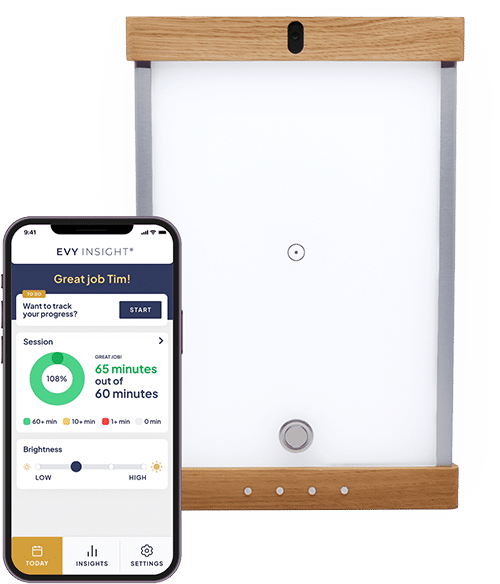Caring for a spouse with dementia can be both emotionally and physically demanding. This guide offers comprehensive information on the various resources and care options available to you, including government benefits, financial assistance, and support services. By understanding the available options, you can effectively manage your caregiving responsibilities and ensure your husband receives the best possible care.

Christopher Ravn
Key Takeaways
1. Explore the various resources available to you, including financial aid, emotional support, and practical assistance, to effectively manage your caregiving responsibilities.
2. Take advantage of government programs like Medicare, Social Security Disability Insurance, and Supplemental Security Income to help offset the financial burden of caring for your spouse with dementia.
3. Explore care options such as home care services, adult day care, and respite care to provide your spouse with the necessary support and give yourself a much-needed break.
Table of Contents
1. My Husband Has Dementia What Help Can I Get
2. My Wife Has Dementia What Help Can I Get
3. What Benefits Is A Person With Dementia Entitled To?
4. What Happens To Dementia Patients With No Money
5. How Can I Protect My Assets When My Husband Has Dementia?
6. Can I Get Paid For Taking Care Of My Husband Who Has Dementia?
7. What Care Options Are Available For My Wife With Dementia
8. How Do I Cope With A Wife Who Has Dementia?
9. Frequently Asked Questions About My Husband Has Dementia What Help Can I Get?
My Husband Has Dementia What Help Can I Get
Let us look at some resources that provide financial, emotional, and practically supportive support:
- Family Caregiver Alliance provides emotional support and resources for spouses with dementia.
- The National Institute of Aging (NIA) provides caregivers with resources and tips to manage their emotions. If your husband has dementia and you are his primary caregiver, then know that your struggle is known. There are many types of aid that you can access to help you financially, emotionally, and practically. and self-care methods.
- The Alzheimer’s Association provides emotional assistance, education, and resources that can be obtained online and in local centers.
- Medicare may provide financial aid for hospital stays and medical prescriptions.
- Social Security Disability Insurance (SSDI) and Supplemental Security Income (SSI) may provide financial aid for dementia patients and their caregivers.
- The Veterans Administration (VA) offers caregiver support programs that may be able to provide financial aid and respite care.
- Home Care Services offer assistance with daily routines at home.
- Adult Day Care Centers offer meals and activities, enabling your husband to receive care and support.
- Respite care helps you to take a break from your daily caregiving.
My Wife Has Dementia What Help Can I Get
- Healthcare providers: Consult your wife’s physician and specialist who may provide and manage her dementia symptoms. This entails offering pathways and recommendations to various community organizations.
- Dementia care coordinators: They can help address and identify issues that may arise. Hence, they can come up with a care plan and connect you with local support and service support systems.
- Adult Day Centers: These facilities provide daytime care and supervision, which gives you a chance to take a break.
- Home care services: Nurses and assistants can come over to your home and help your wife with her medical needs.
- Medicare: Helps cover dementia services and medications.
- Supplemental Security Income (SSI): Helps to provide financial aid for those with dementia.
- Veteran Affairs (VA) caregiver support programs have financial assistance for caregivers of veterans who suffer from dementia.
- Family caregiver alliance: Helps provide education, resources, and emotional support to spouses of dementia patients.
- Online support group: Provides 24/7 support for individuals who face challenges and need emotional support.
- Respite care: Provides short-term care for your spouse and gives you the chance to take a break.
What Benefits Is A Person With Dementia Entitled To?
- Social Security Disability Insurance (SSDI) provides disability benefits to the dementia patient. The patient must demonstrate their severe dementia-related impairment and their inability to work.
- Supplemental Security Income (SSI) provides financial aid to those who are 65 years and older and have limited finances to aid themselves. There are income and resource criteria to qualify.
- The Social Security Administration (SSA) has an evaluation that determines disability impairment.
- Residual Functional Capacity (RFD) is assessed by the SSAD to determine a person’s ability to perform daily activities, social interactions, and work tasks.
- Healthcare programs such as Medicaid help cover healthcare services, doctor visits, hospital stays, and medications.
- Visit the SSA website.
- Contact and schedule an appointment with the SSA office.
- Collect all medical records to support your claims.
- Consult with a disability advocate to help with the application process.
Can You Get Extra Money When Your Wife Has Dementia?
- Medicaid: A state program that provides long-term care and eligibility is dependent on the state.
- Medicare is a federal program where those aged 65 and above can receive aid to pay for their short-term medical expenses. However, Medicare Advantage may provide non-medical support.
- Veterans Aid and Attendance Pension may provide memory care for dementia veterans. You will need to show proof that you served in the military.
Join families who have found relief with EVY LIGHT®
Click below to see how EVY LIGHT® is helping others
What Happens To Dementia Patients With No Money
How Do I Manage Money Problems For My Husband With Dementia?
- Speak to your husband about the monthly household budget and come up with a plan. Set up a billing system to help ensure payments are made on time.
- Manage your husband’s spending amount and get rid of unwanted credit or debit cards.
- Establish a Lasting Power of Attorney (LPA) to manage and handle your husband’s financial and property needs. This will get someone to act on his behalf when he is unable to make decisions.
- Always review bank statements and financial records to see if there are any unusual signatures, unexplained changes, missing belongings, and unusual transactions. Seek professional aid from an attorney, financial advisor, and geriatrician to manage your husband’s assets and finances.
How Can I Protect My Assets When My Husband Has Dementia?
- A power of attorney helps to appoint a trusted person to manage your husband’s affairs and finances.
- To prevent the use of assets for long-term expenses, consider an Asset Protection Trust (MAPT).
- Transfer assets to your name to help control and protect his affairs.
- We should plan for long-term needs like assisted living and home care.
- Select an agent who is knowledgeable and trustworthy and who will have your husband’s best interests at heart.
- Plan with a POA to mitigate conservatorship.

Can I Divorce My Husband Who Has Dementia?
- Consider if your spouse suffering from dementia is able to participate in legal proceedings.
- Ensure that your spouse has legal representation to help protect their rights and interests.
- If possible, consider no-fault divorce, where you do not need to fault or blame each other.
- Seek caregiver support during the divorce process and come up with clear guides to ensure that your spouse’s wishes are respected.
- Seek advice from a family attorney and ensure that there is estate planning for the affected spouse.

Can I Get Paid For Taking Care Of My Husband Who Has Dementia?
- Medicaid’s cash and counseling program provides family members with ways to compensate for their loved ones’ dementia. This is dependent on the state.
- Medicated Home and Community Based Services (HCBS) Waivers offer personal care, homemaker services, respite care, and adult day care.
- Veteran-Directed Home and Community-Based Services (VD-HCBS)
- State-funded programs such as the New Jersey’s Assistance for Community Caregiving (JACC) program.
- Verify the husband’s eligibility and that the requirements are satisfied.
- Contact your local Medicaid office.
- Complete the assessment form and the level of care required.
- Decide which person will be appointed caregiver.
- Submit the application with proof, a care plan, and caregiver information.
- Your husband is a Medicaid recipient.
- The program is designed for dementia patients.
- Possibility of family members hired as caregivers.
What Care Options Are Available For My Wife With Dementia
These are the care options that are available for your wife with dementia. They are:
Assistance with daily living activities is provided by In-Home care. These could include home health care agencies, private caregivers, adult day care, respite care, assisted living facilities, nursing homes, and memory care centers. You will also need to know how long can a person with dementia live at home.
- Identifying strengths and weaknesses.
- Know her daily habits and discuss goals and expectations with family members.
- Compare care services, quality, and costs.
- Find out reviews and the staff’s training and experiences.
- Ensure that there is proper certification.
How Can I Get Respite Care For My Husband With Dementia?
- Provides an opportunity to rest and recharge.
- Allows patients to socialize with professionals.
- Minimizes caregiver burnout and overall quality.
- Contact the local senior center, agencies, or local religious bodies.
How To Choose The Right Care Home For Your Husband?
- Your husband’s facility or care helps manage his behavior and daily tasks.
- The staff has a reputation and years of experience with dementia care techniques.
- The place has a warm and welcoming environment.
- The facility has proper respite care services that offer temporary care alongside other caregivers.
- Look at online reviews and come up with a checklist of requirements such as room type, activities provided like sensory activities for dementia patients, medication management, social activities, therapy sessions, or even light therapy for dementia and assistance tasks.
How Do I Cope With A Wife Who Has Dementia?
- Accept that your wife is suffering from dementia and learn to accept the fact.
- At times, use humor to cope with a tense situation and ensure a positive atmosphere.
- Focus on living in the moment and think of primitive ways to maintain a connection.
Frequently Asked Questions About My Husband Has Dementia What Help Can I Get?
My Husband Has Dementia What Help Can I Get?
If your husband has dementia and you are his primary caregiver, then know that your struggle is known. There are many types of aid that you can access to help you financially, emotionally, and practically. Let us look at some resources that provide financial, emotional, and practically supportive support:
- Family Caregiver Alliance provides emotional support and resources for spouses with dementia.
- The National Institute of Aging (NIA) provides caregivers with resources and tips to manage their emotions and self-care methods.
- The Alzheimer’s Association provides emotional assistance, education, and resources that can be obtained online and in local centers.
- Medicare, which provides financial aid for hospital stays and medical prescriptions.
- Social Security Disability Insurance (SSDI) and Supplemental Security Income (SSI) may provide financial aid for dementia patients and their caregivers.
- Veterans Administration (VA) caregiver support programs that may be able to provide financial aid and respite care.
- Home Care Services, such as in-home assistance with daily routines.
- Adult Day Care Centers that provide meals and activities so that your husband can be provided care and support.
- Respite care, which helps you take a break from your daily caregiving.
Can I Get Paid For Taking Care Of My Husband Who Has Dementia?
- Medicaid’s cash and counseling program provides family members with ways to compensate for their loved ones’ dementia. This is dependent on the state.
- Medicated Home and Community Based Services (HCBS) Waivers offer personal care, homemaker services, respite care, and adult day care.











































